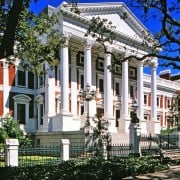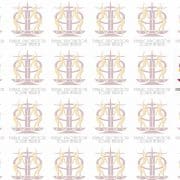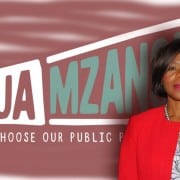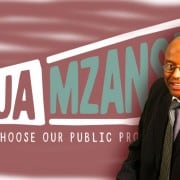|
Getting your Trinity Audio player ready...
|
The mixed legacy left by South Africa’s public protectors continues in part two of our three-part series, which deals with Lawrence Mushwana, the predecessor of incumbent Thuli Madonsela. Part three will look at Madonsela herself, while part one highlighted the role played by now-Judge Selby Baqwa in establishing the institution of the Public Protector.
Lawrence Mushwana
The appointment of Lawrence Mushwana as public protector in 2002 by former president Thabo Mbeki was met with public criticism as he had previously served as deputy chairperson in the National Council of Provinces.
Opposition parties felt that his known ANC alliance would taint the independence of the Public Protector. Despite these concerns, Mushwana received the 60% vote needed in the National Assembly and he was subsequently appointed the second public protector. He inherited the mixed legacy of his predecessor, Judge Selby Baqwa, who had established and implemented strong structural and procedural policies within the Office of the Public Protector (OPP), but had failed to increase pressure on government and state agencies to be more responsive and accountable to the public.
Expanding the OPP
Mushwana significantly expanded Baqwa’s outreach programme. Provincial offices began sending two investigators into small towns and townships up to four days a week. Gary Pienaar, a former chief investigator in the OPP, notes that investigators arranged and addressed awareness-raising events and held clinics to receive complaints from the public. “Adv Mushwana was a committed supporter of the establishment of satellite offices in the larger provincial towns, thereby extending the reach of the Office and enhancing accessibility and access to justice,” says Pienaar. By the time Mushwana stepped down, the OPP was receiving on average 13 000 complaints a year.
The current public protector, Thuli Madonsela, credits Mushwana for creating remedial actions for investigations – which the Constitutional Court judgment on 31 March 2016 on the Nkandla matter confirmed as binding. “Adv Mushwana was the first public protector to create concrete remedies. We speak today about government being responsible for doing something concrete to fix the problem it has created through improper conduct because Advocate Mushwana did that,” Madonsela said at a recent media briefing.
Watchdog with no bark or bite
While not finding fault in certain individuals in the ANC does not constitute wrongful conduct on the part of Mushwana, the somewhat soft findings and remedial action in high-profile cases brought little or no consequences for the offenders and painted the OPP as a lapdog for the ruling party. Several cases show Mushwana’s alleged bias towards certain ANC leaders:
In 2004, he deemed the appointment of Robert McBride as the Ekurhuleni Metro police chief as above board, despite the fact that McBride was unsuitable for the post and did not have the relevant experience and qualifications. Mushwana found that the appointment was proper given that the former national police commissioner, Jackie Selebi, had “waived the requirements that McBride had to be a member of the Metro police”.
That same year, Jacob Zuma – deputy president at the time – filed a complaint with Mushwana regarding the manner in which an investigation into his involvement in the arms deal was being conducted by the Scorpions. Zuma complained that information had been deliberately leaked to tarnish his name. He also noted that the then director of national public prosecutions, Bulelani Ngcuka, and the former minister of justice, Penuell Maduna, had made claims that there was a prima facie case of corruption against him. Mushwana’s investigation found in favour of Zuma and that Ngcuka’s and Maduna’s statement was damaging to the deputy president’s image.
Mushwana was also deemed to have not spoken out against excessive luxury. In 2006, he found that then deputy president Phumzile Mlambo-Ngcuka had not abused her official VIP transport and security arrangements by allowing her family to travel with her on holiday in a South African Air Force aircraft. He also found that she had not acted in breach of the Executive Ethics Code by failing to declare as a gift the free accommodation offered to her and her entourage by the head of state of the United Arab Emirates. Mushwana merely recommended the finalisation of the draft Presidential Handbook.
The impression of soft findings continued with the 2005 Oilgate scandal, again involving Mlambo-Ngcuka, this time in the role as minister of minerals and energy affairs. Mushwana was investigating allegations that Mlambo-Ngcuka had influenced Petro SA to advance payment to a private firm, Imvume Management, and that Imvume had made payments to a company that belonged to her brother. This created a conflict of interest. According to Pienaar, Mushwana’s “report found that the OPP could and needed to do nothing about this outrageous abuse. A court subsequently ordered the [Public Protector] to undertake a full and proper investigation”.
Although Mushwana did make some negative findings against ANC members, he could not shake off his partisanship towards the ruling party. This painted the OPP significantly as an institution that lacked considerable bite. Mushwana currently serves as the chairman of the South African Human Rights Commission.
• The Democratic Governance and Rights Unit contributed to this article
• Image from the Human Rights Commission








